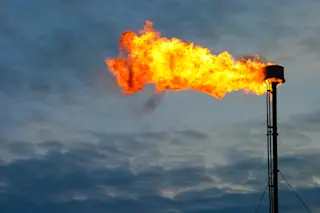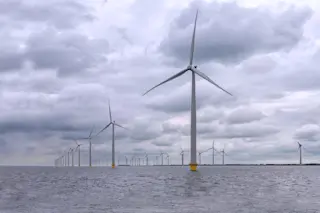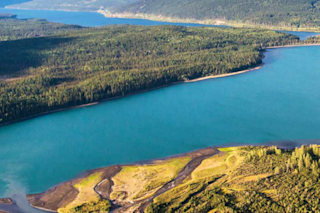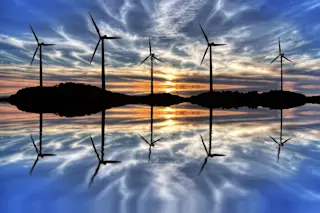With stories such as this and this becoming more common, I knew it was only a matter of time before someone would show why energy security is no longer a winning issue for climate change advocates. Today, Michael Lind makes the case in Salon:
As everyone who follows news about energy knows by now, in the last decade the technique of hydraulic fracturing or "fracking," long used in the oil industry, has evolved to permit energy companies to access reserves of previously-unrecoverable "shale gas" or unconventional natural gas. According to the U.S. Energy Information Administration, these advances mean there is at least six times as much recoverable natural gas today as there was a decade ago. Natural gas, which emits less carbon dioxide than coal, can be used in both electricity generation and as a fuel for automobiles. The implications for energy security are startling. Natural gas may be only the beginning. Fracking also permits the extraction of previously-unrecoverable "tight oil," thereby postponing the day when the world runs out of petroleum. There is enough coal to produce energy for centuries. And governments, universities and corporations in the U.S., Canada, Japan and other countries are studying ways to obtain energy from gas hydrates, which mix methane with ice in high-density formations under the seafloor. The potential energy in gas hydrates may equal that of all other fossils, including other forms of natural gas, combined.
This is all fairly mind-blowing, and is sure to scramble global warming politics and policy. Here's Lind sketching out the big picture:
If gas hydrates as well as shale gas, tight oil, oil sands and other unconventional sources can be tapped at reasonable cost, then the global energy picture looks radically different than it did only a few years ago. Suddenly it appears that there may be enough accessible hydrocarbons to power industrial civilization for centuries, if not millennia, to come. So much for the specter of depletion, as a reason to adopt renewable energy technologies like solar power and wind power. Whatever may be the case with Peak Oil in particular, the date of Peak Fossil Fuels has been pushed indefinitely into the future. What about national security as a reason to switch to renewable energy? The U.S., Canada and Mexico, it turns out, are sitting on oceans of recoverable natural gas. Shale gas is combined with recoverable oil in the Bakken "play" along the U.S.-Canadian border and the Eagle Ford play in Texas. The shale gas reserves of China turn out to be enormous, too. Other countries with now-accessible natural gas reserves, according to the U.S. government, include Australia, South Africa, Argentina, Chile, France, Poland and India. Because shale gas reserves are so widespread, the potential for blackmail by Middle Eastern producers and Russia will diminish over time. Unless opponents of fracking shut down gas production in Europe, a European Union with its own natural gas reserves will be far less subject to blackmail by Russia (whose state monopoly Gazprom has opportunistically echoed western Greens in warning of the dangers of fracking). The U.S. may become a major exporter of natural gas to China -- at least until China borrows the technology to extract its own vast gas reserves.
The bottom line, according to Lind:
Two arguments for switching to renewable energy -- the depletion of fossil fuels and national security -- are no longer plausible.
Now that is a game changer.













